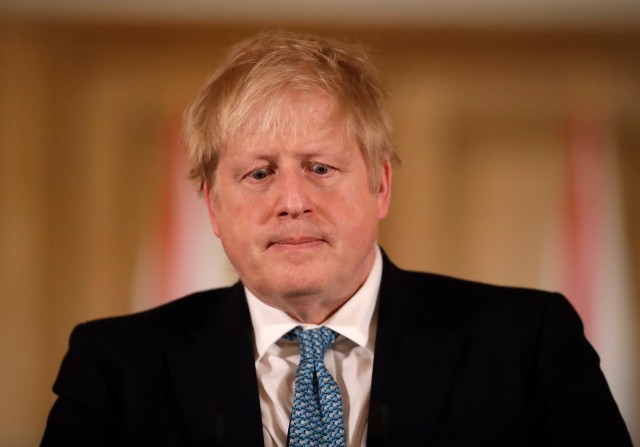
 A report by a public inquiry concluded on Thursday, November 20 that former British Prime Minister Boris Johnson oversaw a toxic, chaotic, and dithering response to the COVID-19 pandemic. The inquiry found that a critical delay in locking down the country resulted in an estimated 23,000 more deaths in the first wave alone. Britain recorded more than 230,000 COVID deaths in total, a rate higher than most countries in western Europe. The inquiry, which Johnson himself ordered, delivered a blistering assessment of his government's actions, criticizing his indecisive leadership, the rule-breaking in his Downing Street office, and the conduct of his top staff. The inquiry chair, former judge Heather Hallett, stated that if earlier action had been taken to prevent the virus's spread, a lockdown might have been avoided entirely. However, the governments failure to act made it unavoidable. The report found that Johnson failed to appreciate the seriousness of the virus in early 2020, believing it would amount to nothing and was distracted by ongoing government business, particularly the final stages of the European Union departure talks. Hallett concluded that by the time Johnson announced a national lockdown on March 23, it was "too little, too late." The report concluded that had Britain locked down just one week earlier on March 16, the number of deaths in the first wave up to July would have been reduced by approximately 23,000, or 48%. Further delays in implementing measures later in the year also contributed to the need for additional national lockdowns. The inquiry delivered a harsh critique of the work environment at the center of government:"There was a toxic and chaotic culture at the centre of the UK government during the pandemic." Hallett noted that Johnson repeatedly changed his mind and failed to make timely decisions, reinforcing a culture "in which the loudest voices prevailed and the views of other colleagues, particularly women, often went ignored, to the detriment of good decision-making." When he appeared before the committee in 2023, Johnson admitted his government had been too complacent and had "vastly underestimated" the risks, offering an apology. The inquiry did not spare other key government figures. Former health minister Matt Hancock's "truthfulness and reliability" in meetings was cited as a cause for concern, alongside his eventual resignation after breaching restrictions. Some of the harshest language was directed at Johnson's top adviser, Dominic Cummings. While acknowledging his "commendable" role in policy changes at the start, the report described him as a "destabilising influence" who "used offensive, s3xualised and misogynistic language" and strayed far from his proper role. The report, which included 19 recommendations to improve the country's response to any future pandemic, delivered a devastating verdict, prompting a campaign group for bereaved families to comment that "it is devastating to think of the lives that could have been saved under a different Prime Minister."
A report by a public inquiry concluded on Thursday, November 20 that former British Prime Minister Boris Johnson oversaw a toxic, chaotic, and dithering response to the COVID-19 pandemic. The inquiry found that a critical delay in locking down the country resulted in an estimated 23,000 more deaths in the first wave alone. Britain recorded more than 230,000 COVID deaths in total, a rate higher than most countries in western Europe. The inquiry, which Johnson himself ordered, delivered a blistering assessment of his government's actions, criticizing his indecisive leadership, the rule-breaking in his Downing Street office, and the conduct of his top staff. The inquiry chair, former judge Heather Hallett, stated that if earlier action had been taken to prevent the virus's spread, a lockdown might have been avoided entirely. However, the governments failure to act made it unavoidable. The report found that Johnson failed to appreciate the seriousness of the virus in early 2020, believing it would amount to nothing and was distracted by ongoing government business, particularly the final stages of the European Union departure talks. Hallett concluded that by the time Johnson announced a national lockdown on March 23, it was "too little, too late." The report concluded that had Britain locked down just one week earlier on March 16, the number of deaths in the first wave up to July would have been reduced by approximately 23,000, or 48%. Further delays in implementing measures later in the year also contributed to the need for additional national lockdowns. The inquiry delivered a harsh critique of the work environment at the center of government:"There was a toxic and chaotic culture at the centre of the UK government during the pandemic." Hallett noted that Johnson repeatedly changed his mind and failed to make timely decisions, reinforcing a culture "in which the loudest voices prevailed and the views of other colleagues, particularly women, often went ignored, to the detriment of good decision-making." When he appeared before the committee in 2023, Johnson admitted his government had been too complacent and had "vastly underestimated" the risks, offering an apology. The inquiry did not spare other key government figures. Former health minister Matt Hancock's "truthfulness and reliability" in meetings was cited as a cause for concern, alongside his eventual resignation after breaching restrictions. Some of the harshest language was directed at Johnson's top adviser, Dominic Cummings. While acknowledging his "commendable" role in policy changes at the start, the report described him as a "destabilising influence" who "used offensive, s3xualised and misogynistic language" and strayed far from his proper role. The report, which included 19 recommendations to improve the country's response to any future pandemic, delivered a devastating verdict, prompting a campaign group for bereaved families to comment that "it is devastating to think of the lives that could have been saved under a different Prime Minister."


0 Comments